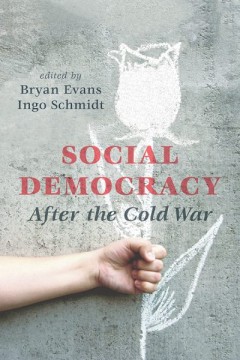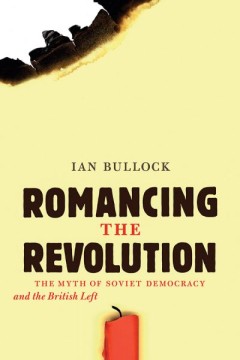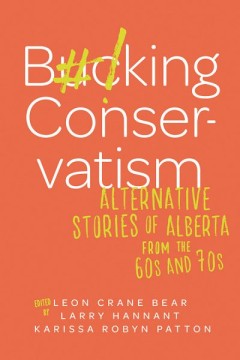Filter by

World Bolshevism
Following Martov’s untimely death in 1923, a Russian-language edition of one of his books, World Bolshevism, was published. But it was only in 2000, after decades of extreme censorship, that parts of the book were legally published in Russia. In English, this work has reached the public in pieces, often as a part of pamphlets with limited circulation. This edition, which includes an introduct…
- Edition
- -
- ISBN/ISSN
- 9781771992732.01
- Collation
- -
- Series Title
- -
- Call Number
- 194 pages

Under Siege The Independent Labour Party in Interwar Britain
Despite this reversal of fortunes, during the 1930s—years that witnessed the ascendancy of both Stalin and Hitler—the ILP demonstrated an unswerving commitment to democratic socialist thinking. Drawing extensively on the ILP’s Labour Leader and other contemporary left-wing newspapers, as well as on ILP publications and internal party documents, Bullock examines the debates and ideological…
- Edition
- -
- ISBN/ISSN
- 9781771991551.01
- Collation
- -
- Series Title
- -
- Call Number
- -

“Truth Behind Bars” Reflections on the Fate of the Russian Revolution
Paul Kellogg uses the story of Vorkuta as a frame with which to re-assess the Russian Revolution. In particular, he turns to the contributions of Iulii Martov, a contemporary of Lenin, and his analysis of the central role played in the revolution by a temporary class of peasants-in-uniform. Kellogg explores the persistence and creativity of workers’ resistance in even the darkest hours of aut…
- Edition
- -
- ISBN/ISSN
- 9781771992459.01
- Collation
- -
- Series Title
- -
- Call Number
- 6x9, 440 pages

Social Democracy After the Cold War
Offering a comparative look at social democratic experience since the Cold War, the volume examines countries where social democracy has long been an influential political force—Sweden, Germany, Britain, and Australia—while also considering the history of Canada’s NDP and the emergence of New Left parties in Germany and the province of Québec. The case studies point to a social democracy…
- Edition
- -
- ISBN/ISSN
- 978-1-926836-87-4
- Collation
- -
- Series Title
- -
- Call Number
- 340 pages

Romancing the Revolution The Myth of Soviet Democracy and the British Left
Romancing the Revolution uncovers the imprint of this myth on left-wing organizations and their publications, ranging from those that presented themselves as “British Bolsheviks”—the British Socialist party and The Call, the Socialist Labour party’s The Socialist, Sylvia Pankhurst’s Workers’ Dreadnought—to the much more equivocal Labour Leader and The New Statesmen.
- Edition
- -
- ISBN/ISSN
- 9781926836133
- Collation
- -
- Series Title
- -
- Call Number
- 438 pages

Romancing the Revolution The Myth of Soviet Democracy and the British Left
Romancing the Revolution uncovers the imprint of this myth on left-wing organizations and their publications, ranging from those that presented themselves as “British Bolsheviks”—the British Socialist party and The Call, the Socialist Labour party’s The Socialist, Sylvia Pankhurst’s Workers’ Dreadnought—to the much more equivocal Labour Leader and The New Statesmen.
- Edition
- -
- ISBN/ISSN
- 978-1-926836-13-3
- Collation
- -
- Series Title
- -
- Call Number
- -

The Red Baron of IBEW Local 213 Les McDonald, Union Politics, and the 1966 W…
Referencing Local 213’s Minute Books, newspaper articles, collected correspondence, as well as dozens of personal interviews conducted by the author, this book examines the history of IBEW Local 213 in the turbulent years leading up to the Lenkurt strike. In addition to describing these events and their important historical ramifications, author Ian McDonald chronicles how his father helped t…
- Edition
- -
- ISBN/ISSN
- 9781771993487
- Collation
- -
- Series Title
- Working Canadians: Books from the CCLH
- Call Number
- 6 x 9, 404 pages

Hobohemia and the Crucifixion Machine Rival Images of a New World in 1930s V…
Vancouver’s municipal government entered into contractual relationships with dozens of private businesses, tendering bids for meals in much the same fashion as for printing jobs and construction projects. As a result, entrepreneurs clamoured to get their share of the state spending. With the emergence of work relief camps, the provincial government harnessed the only currency that homeless me…
- Edition
- -
- ISBN/ISSN
- 9781926836287.01
- Collation
- -
- Series Title
- Fabriks: Studies in the Working Class
- Call Number
- -

Class Warrior The Selected Works of E. T. Kingsley
In October 1890, Eugene T. Kingsley’s life changed irrevocably while working as a brakeman on the Northern Pacific Railway when he was injured in a fall between two rail cars. While recuperating in hospital after the amputation of both legs, he began reading the works of Karl Marx. Joining a popular socialist movement, his activism eventually brought him to Vancouver, B.C. where he founded th…
- Edition
- Benjamin Isitt,Ravi Malhotra ,Bryan D. Palmer
- ISBN/ISSN
- 9781778290046.01
- Collation
- -
- Series Title
- CCLH Publications
- Call Number
- 6 x 9, 400 pages

Bucking Conservatism Alternative Stories of Alberta from the 1960s and 1970s
With lively, informative contributions by both scholars and activists, Bucking Conservatism highlights the individuals and groups who challenged Alberta’s conservative status quo in the 1960s and 70s. Drawing on archival records, newspaper articles, police reports, and interviews, the contributors examine Alberta’s history through the eyes of Indigenous activists protesting discriminatory l…
- Edition
- -
- ISBN/ISSN
- 9781771992572.01
- Collation
- -
- Series Title
- -
- Call Number
- 368 pages
 Computer Science, Information & General Works
Computer Science, Information & General Works  Philosophy & Psychology
Philosophy & Psychology  Religion
Religion  Social Sciences
Social Sciences  Language
Language  Pure Science
Pure Science  Applied Sciences
Applied Sciences  Art & Recreation
Art & Recreation  Literature
Literature  History & Geography
History & Geography